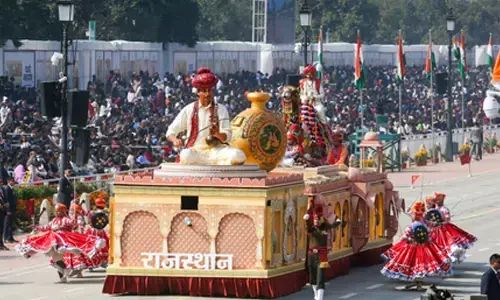In Sunderbans, poachers become conservationists

In Sunderbans, Poachers Become Conservationists. Poachers have turned conservationists in the Sunderbans, giving a ray of hope to conservationists for saving the world\'s largest mangrove forest which is facing threat from rising sea level and climate change and the wildlife there.
Bali Island: Poachers have turned conservationists in the Sunderbans, giving a ray of hope to conservationists for saving the world's largest mangrove forest which is facing threat from rising sea level and climate change and the wildlife there.

Anil Mistry, a 48-year-old resident of Bali island in the Sunderbans is one such poacher-turned-conservationist. He is now working hard along with his friends to stop illegal poaching and preserve bio-diversity conservation.
"My entire family, since the generation of my grandfather had been traditional hunters of the region. We used to earn our living by hunting wild animals and birds. But now for the last 15 years I am working for the cause of conservation of Sunderbans which is like my mother," Mistry told PTI.
Asked the reason behind his quitting, he said " In the late nineties one day when I had gone hunting I had killed a mother deer. Her fawns kept moving around her body and the sight changed my mind forever."
"After I left poaching I convinced several of my other friends to work for conservation. Now we have a team of 12 people spread across Sunderbans and we work with different NGOs to fight against poaching and sensitise people about climate change," Mistry, who now works with Wildlife Protection Society of India (WPSI).
State Sunderbans Affairs Minister Manturam Pakhira praised the efforts of Mistry and his team who have spread to various parts of Sundarbans in conserving the biodiversity of the UNESCO world heritage site.
"They are doing a tremendous good job. The Sunderbans Development Board works in close coordination with them," Pakhira said.
There is a lot of local appreciation too for the poachers-turned-conservationists. They are called 'Bono Bondhu' (Friends of the Jungle) as they work not only work for the protection of biodiversity but also for environment friendly capacity building of the people of the Sunderbans.














